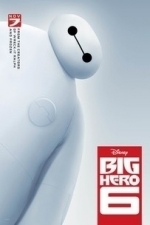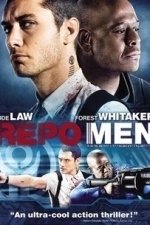
Swanson's Family Med. Review
Medical and Book
App
Swanson's Family Medicine Review efficiently summarizes all the latest know-how in primary care and...

Best Diet Foods!
Medical and Health & Fitness
App
Best Diet Foods! Need to eat more healthy and lose some weight? Healthy living starts with...

DrugHub: Medicine cabinet in your pocket
Medical and Health & Fitness
App
Information you can trust from your Benefits Solutions People. The Great-West Life DrugHub puts a...

CornerJob - Join the team
Business
App
CornerJob has placed among the 10 best APPS of 2016! #BestOfAppStore Find Jobs with CornerJob, the...

FODMAP by FM
Health & Fitness and Lifestyle
App
The low FODMAP diet app has been developed in partnership with medical experts and dietitians from...

Caribbeanjobs.com Job Search
Business and Utilities
App
Find your dream job in the Caribbean. With the CaribbeanJobs.com job search app you can find and...

Popular Science
News and Magazines & Newspapers
App
Popular Science is the magazine for anyone curious about what’s new and next. With a readership...

i-Gun Ultimate - Original Gun App Sensation
Entertainment
App
The first & only interactive gun app with auto zoom, featured in "iGun Traffic Rampage" youtube...
Movie Metropolis (309 KP) rated Big Hero 6 (2014) in Movies
Jun 11, 2019
The first film from this collaboration is Big Hero 6, an animated superhero film in the same vein as Pixar’s The Incredibles. But does it reach those dizzying heights?
Big Hero 6 follows Hiro Hamada, a 14-year-old robotics prodigy as he goes about his life in the fictional city of San Fransokyo alongside his brother Tadashi. Hiro has lost his way after a family tragedy and it takes his brother’s robot Baymax to help find himself again.
The story unfortunately is the film’s weakest link, being predictable at best and downright clichéd at its worst. In this respect, Big Hero 6 falls well short of the standards set by the majority of Pixar’s movies.
Thankfully, the visuals are absolutely stunning, a match for Disney’s best, if not quite up to the level of last year’s How to Train YourBig_Hero_6_Poster_2 Dragon 2. The city of San Fransokyo is beautifully realised in sweeping, gloriously colourful shots that show of the animation best when they’re from above.
The characters themselves are rendered in painstaking detail and in particular sequences it becomes difficult to tell the film apart from a live-action feature.
Vocal performances are also very good. Ryan Potter plays Hiro as a vulnerable, pre-pubescent teen who by the end of the film comes to realise just who he is exceptionally well. James Cromwell, Maya Rudolph and Damon Wayans also lend their recognisable voices to people in the film.
However, by far the stand-out is Baymax, a hilariously funny healthcare robot. Disney’s animators should be given plaudits for crafting a character which despite its lack of facial features and emotive tones is so engaging to watch.
Unfortunately, when Baymax evolves into super-Baymax, his characterisation suffers and the funny, caring nature of him is lost somewhat.
The final third of the film delves into generic superhero fodder, but picks up again just before the end credits role with a deeply emotive.
Big Hero 6 also gets increasingly dark the further into the movie you get, the comedic elements get muddled in a plot which isn’t quite sure which way it wants to go and young children may find it a little to scary to stomach.
Thankfully the negatives here are far outweighed by the positives and Big Hero 6 steamrolls itself into a moving finale which leaves itself open for a sequel nicely.
Overall, from stunning visuals to engaging characters, Big Hero 6 continues Disney’s penchant for creating fun and watchable films. Despite a lack of originality, the character of Baymax makes up for most of the other shortcomings and ensures the generic story is genuinely moving.
https://moviemetropolis.net/2015/02/05/genuinely-moving-big-hero-6-review/
Gareth von Kallenbach (980 KP) rated Repo Men (2010) in Movies
Aug 8, 2019
Based on the novel “The Repossession Mambo” by Eric Garcia, Repo Men is a dark sci-fi action film from director Miguel Sapochnik. It is an oddly sadistic film that begins as a fantastic black comedy/drama, loses its way in the second act with well-shot but mindless action and predictable plot elements, yet still finds its way back before the credits roll.
Remy and Jake, played by Jude Law and Forest Whitaker, are both Repo Men for The Union, an alarming combination of loan shark and artificial organ manufacturer. Those unfortunate patients that fall too far behind on their payments have their artificial parts removed and reclaimed, often accompanied by grisly special effects. Through an accident at a routine repossession, Remy ends up needing a new heart. In the process of trying to pay for it, he realizes that he can no longer find the moral ambivalence necessary to take the life of a stranger in order to earn the money to save his own. This film is definitely not for the squeamish, and many scenes were not unlike watching a surgery in progress.
This film will certainly attract more than a nod from those clamoring for universal healthcare in the United States, as well as those railing against corporate greed at the expense of human life. The Union is everything we love to hate in a corporation. Nothing, from duping emotionally compromised patients, to putting profits above all else, to even killing people, is out of bounds for this corporation. It’s uncommon to see corporate evil of this magnitude in a film, and with Liev Schreiber manning the helm, this evil is personified and delivered with such panache that he becomes an enjoyable caricature to watch.
This movie would be nothing without Remy’s path from classic amoral psychopath to redeemed soul, but the journey at times becomes muddy and obscure. Law plays the part somewhat stiffly, but still manages to shine in his interactions with Whitaker and Schreiber. Whitaker, however, is fantastic as Remy’s uncompromisingly unsympathetic partner Jake, who holds on tightly to what he knows and believes, however unprincipled. By the film’s end, Whitaker’s performance as the frustrated partner becomes even more impressive when compared to Law’s movement from perpetrator to victim to agent of retribution.
For years, Remy had no moral compunction against repossessing organs, nearly always from those who will die without them. But when his heart is removed, he suddenly empathizes with the victims of his profession. An odd paradox: that becoming less human can impart more humanity. Remy is both more genuinely alive after receiving his artificial heart, and more certain he will be dead when he can no longer pay. This is the crux of the film, and on this basis a clever story is told about the intersection of making a living, being alive, and the entanglements they create.

